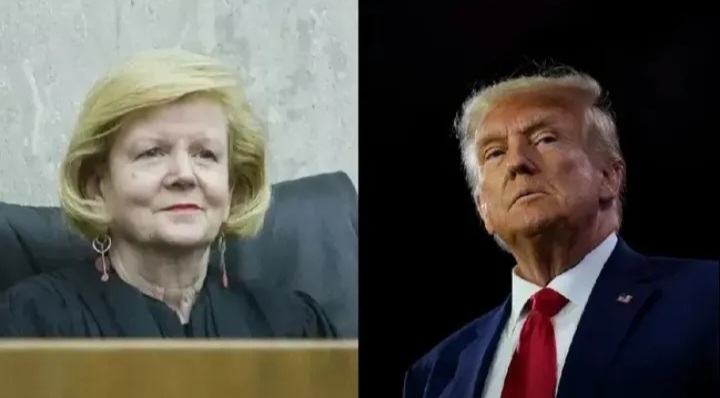CELEBRITY
BREAKING:- Judge Colleen Kollar-Kotelly rules that Donald Trump cannot require proof of citizenship for federal voter registration, blocking Trump’s push for such measures. Raise your hand if you agree with Judge Colleen Kollar-Kotelly✋

BREAKING:- Judge Colleen Kollar-Kotelly rules that Donald Trump cannot require proof of citizenship for federal voter registration, blocking Trump’s push for such measures.
Raise your hand if you agree with Judge Colleen Kollar-Kotelly✋
BREAKING: Judge Kollar-Kotelly rules Trump cannot require proof of citizenship for federal voter registration
In a significant legal decision issued on October 31, 2025, U.S. District Judge Colleen Kollar-Kotelly in Washington, D.C., ruled that former President Donald Trump cannot impose a requirement that prospective voters provide documentary proof of U.S. citizenship — such as a passport or other government-issued document — on the federal voter registration form.
Her ruling delivers a substantial blow to Trump’s broader executive effort to overhaul election procedures and tighten what his administration described as “election integrity” safeguards.
The legal basis of the ruling
Judge Kollar-Kotelly grounded her decision on the constitutional division of election-regulation authority:
She held that the U.S. Constitution assigns the power to regulate federal elections — including qualifications to vote and the “manner” of registration for federal offices — to Congress and the States, not the President.
In her written opinion she wrote: “Because our Constitution assigns responsibility for election regulation to the States and to Congress, this Court holds that the President lacks the authority to direct such changes.”
The ruling bars the Election Assistance Commission (EAC) from adding a proof-of-citizenship requirement to the federal voter registration form pursuant to Trump’s March 25 executive order.
What Trump’s proposal would have done
Under the executive order signed by Trump earlier in 2025, the administration sought to:
Amend the national federal voter registration form to require documentary proof of citizenship (for example, a passport or Real ID-compliant ID).
Require federal voter registration agencies (for example, agencies that also handle public assistance or motor vehicle functions) to “assess” the citizenship status of individuals before providing them the registration form.
Impose penalties or withhold federal election-funding from states that do not comply with the new mandates.
Critics argued these changes would disenfranchise eligible citizens, particularly those who lack ready access to documents like passports or certified birth certificates.
Why the ruling matters
Presidential vs. legislative power: The decision reinforces the principle that the President cannot unilaterally change key election-rules in areas reserved for Congress or the states.
Voter access concerns: Requiring proof of citizenship has been criticized as a barrier to eligible voters who may not possess the required documents or whose documents are hard to retrieve.
Precedent for federal registration forms: Given that states vary widely in their registration systems and documentation requirements, the ruling maintains the existing federal standard (which lets applicants certify citizenship under penalty of perjury) rather than forcing a uniform stringent document-rule.
Election administration implications: The decision leaves open other portions of the executive order (such as rules about mail-in ballots) for further litigation, but the citizenship-proof requirement is permanently blocked in this case.
Reactions
Voting-rights and civil-rights groups welcomed the decision as a protection for eligible voters and a check on executive overreach.
The White House (under Trump) defended the underlying goal — ensuring only U.S. citizens vote — and indicated an appeal may be forthcoming.
What happens next
The broader legal fight continues: other aspects of Trump’s election-reform order remain under challenge in separate lawsuits.
Any federal legislative changes would need to come from Congress; a bill to require proof of citizenship during registration has passed the House but faces long odds in the Senate.
The ruling may influence how states design registration systems and how the federal form interacts with state practice.
✋ Raise your hand if you agree with Judge Kollar-Kotelly — this decision upholds the principle that the President cannot unilaterally impose sweeping changes to how federal elections are conducted.
Would you like a deeper dive into how voter registration law works in the U.S., or how this ruling compares with practices in other countries?











